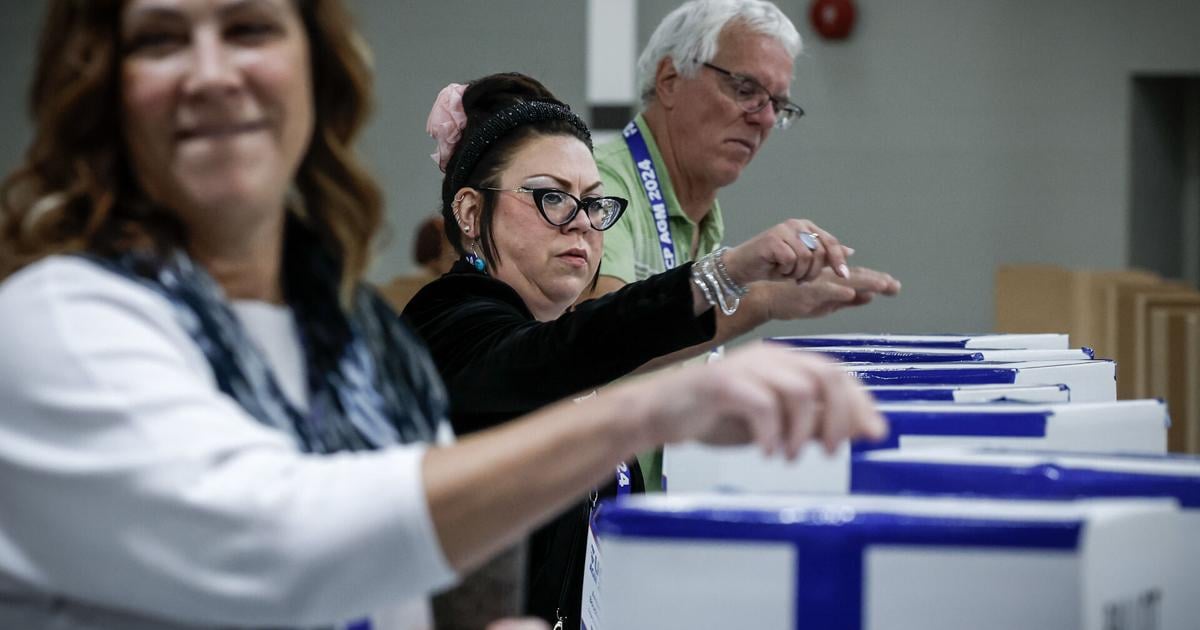PHOENIX (AP) — Robert F. Kennedy Jr., a prominent proponent of debunked public health claims whom Donald Trump has promised to put in charge of health initiatives, said Saturday that Trump would push to remove fluoride from drinking water on his first day in office if elected president.
Fluoride strengthens teeth and reduces cavities by replacing minerals lost during normal wear and tear, according to the U.S. Centers for Disease Control and Prevention. The addition of low levels of fluoride to drinking water has long been considered one of the greatest public health achievements of the last century.
Kennedy made the declaration Saturday on the social media platform X alongside a variety of claims about the heath effects of fluoride.
“On January 20, the Trump White House will advise all U.S. water systems to remove fluoride from public water,” Kennedy wrote. Trump and his wife, Melania Trump, “want to Make America Healthy Again,” he added, repeating a phrase Trump often uses and links to Kennedy.
Trump told NBC News on Sunday that he had not spoken to Kennedy about fluoride yet, “but it sounds OK to me. You know it’s possible.”
The former president declined to say whether he would seek a Cabinet role for Kennedy, a job that would require Senate confirmation, but added, “He’s going to have a big role in the administration.”
Asked whether banning certain vaccines would be on the table, Trump said he would talk to Kennedy and others about that. Trump described Kennedy as “a very talented guy and has strong views.”
The sudden and unexpected weekend social media post evoked the chaotic policymaking that defined Trump’s White House tenure, when he would issue policy declarations on Twitter at virtually all hours. It also underscored the concerns many experts have about Kennedy, who has long promoted debunked theories about vaccine safety, having influence over U.S. public health.
In 1950, federal officials endorsed water fluoridation to prevent tooth decay, and continued to promote it even after fluoride toothpaste brands hit the market several years later. Though fluoride can come from a number of sources, drinking water is the main source for Americans, researchers say.
Officials lowered their recommendation for drinking water fluoride levels in 2015 to address a tooth condition called fluorosis, that can cause splotches on teeth and was becoming more common in U.S. kids.
In August, a federal agency determined “with moderate confidence” that there is a link between higher levels of fluoride exposure and lower IQ in kids. The National Toxicology Program based its conclusion on studies involving fluoride levels at about twice the recommended limit for drinking water.
A federal judge later cited that study in ordering the U.S. Environmental Protection Agency to further regulate fluoride in drinking water. U.S. District Judge Edward Chen cautioned that it’s not certain that the amount of fluoride typically added to water is causing lower IQ in kids, but he concluded that mounting research points to an unreasonable risk that it could be. He ordered the EPA to take steps to lower that risk, but didn’t say what those measures should be.
In his X post Saturday, Kennedy tagged Michael Connett, the lead attorney representing the plaintiff in that lawsuit, the environmental advocacy group Food & Water Watch.
Kennedy’s anti-vaccine organization has a lawsuit pending against news organizations including The Associated Press, accusing them of violating antitrust laws by taking action to identify misinformation, including about COVID-19 and COVID-19 vaccines. Kennedy is on leave from the group but is listed as one of its attorneys in the lawsuit.
What role Kennedy might hold if Trump wins on Tuesday remains unclear. Kennedy recently told NewsNation that Trump asked him to “reorganize” agencies including the U.S. Centers for Disease Control and Prevention, the National Institutes of Health, the Food and Drug Administration and some agencies under the Department of Agriculture.
But for now, the former independent presidential candidate has become one of Trump’s top surrogates. Trump frequently mentions having the support of Kennedy, a scion of a Democratic dynasty and the son of former Attorney General Robert Kennedy and nephew of President John F. Kennedy.
Kennedy traveled with Trump Friday and spoke at his rallies in Michigan and Wisconsin.
Trump said Saturday that he told Kennedy: “You can work on food, you can work on anything you want” except oil policy.
“He wants health, he wants women’s health, he wants men’s health, he wants kids, he wants everything,” Trump added.


































